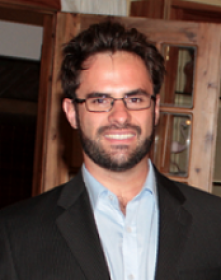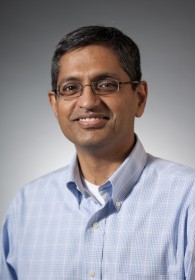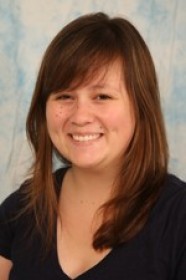Mobile Robot Perception for Long-term Autonomy
Event Location: NSH 1305Bio: Gabe Sibley is an Assistant Professor in Computer Science at the University of Colorado, Boulder. Before joining CU, Gabe was an Assistant Professor in Computer Science at George Washington University and Director of the Autonomous Robotics & Perception Lab. Previously, Gabe was a Junior Research Fellow at Somerville College, Oxford, and [...]
From learning visual relationships to perceptual and cognitive organization
Event Location: NSH 1507Bio: Phillip Isola is a PhD student in Brain & Cognitive Sciences at MIT, under the supervision of Ted Adelson. He studies a mix of human and computer vision.Abstract: No pixel is an island. It is connected to the rest of the visual visual by a web of similarities, associations, and other [...]
Experience Graphs: Leveraging Experience in Planning
Event Location: NSH 3305Abstract: Motion planning is a central problem in robotics and is crucial to finding paths to navigate and manipulate safely and efficiently. Ideally, we want planners which find paths quickly and of good quality. Additionally, planners should generate predictable motions, which are safer when operating in the presence of humans. While the [...]
2015 National Robotics Week Celebration
Event Location: CampusAbstract: The Robotics Institute will celebrate the fifth annual National Robotics Week on April 16 & 17 with lectures, project demonstrations, the annual Mobot (mobile robot) races and a reception for RI affiliated people. April 16 12:00 - 1:30 p.m.: Teruko Yata Memorial Lecture in Robotics A School of Computer Science Distinguished Lecture [...]
Comprehensive Human State Modeling and Its Applications
Event Location: NSH 1507Bio: Ajay Divakaran, Ph.D., is a Program Director and leads the Vision and Multi-Sensor group in SRI International’s Vision and Learning Laboratory. Divakaran is currently the principal investigator for a number of SRI research projects. His work includes multimodal modeling and analysis of affective, cognitive, and physiological aspects of human behavior, interactive [...]
Enabling High Speed Autonomous Flights
Event Location: NSH 1507Bio: Sankalp Arora is a Ph.D. student in the Robotics Institute advised by Sebastian Scherer. He received his B.E. in Electronics and Communication Engineering from the University of Delhi in India in 2010. His current research focuses on exploration senor and path planning for aerial vehicles. He was research staff at FRC [...]
Supervised Descent Method
Event Location: GHC 2109Abstract: In this thesis, I aim to present a new perspective on looking at classical problems in Computer Vision. Instead of spending efforts on finding novel objective functions and improving existing optimization algorithms, I aim to demonstrate that formulating those problems as policy learning yields more flexible and efficient algorithms. Our recently [...]
Grounding text, maps, and images to 3D geometry
Event Location: NSH 1305Bio: Bryan Russell is a Research Scientist in the Creative Technologies Lab at Adobe Research in San Francisco. He received his Ph.D. from MIT in the Computer Science and Artificial Intelligence Laboratory in 2008 under the supervision of Professors William T. Freeman and Antonio Torralba. He was a post-doctoral fellow from 2008-2010 [...]
Separation Anxiety: Sending Large Robots to Work on Their Own
Event Location: GHC 6115Bio: Sarjoun graduated from the RI PhD program in 2007 and went on to found Bossa Nova Robotics, with a mission to put robots in people's lives. Bossa Nova designed, built and commercialized half a million robot toys, and is currently developing service applications for CMU's Ballbot.Sarjoun leads the development of Bossa [...]
Learning a Context-Dependent Switching Strategy for Robust Visual Odometry
Event Location: GHC 2109Bio: Kristen Holtz is a Ph.D. student in the Robotics Institute advised by Dr. Sebastian Scherer. She received her B.S. in Mechanical Engineering with a minor in Control and Dynamical Systems from California Institute of Technology in 2013. Her current research focuses on increasing robustness to unanticipated faults and failures, with the [...]









